第17章 Chapter 11(1)
Of natural affection When he was visited by one of the magistrates, Epictetus inquired of him about several particulars, and asked if he had children and a wife. The man replied that he had; and Epictetus inquired further, how he felt under the circumstances. "Miserable," the man said. Then Epictetus asked, "In what respect," for men do not marry and beget children in order to be wretched, but rather to be happy. "But I," the man replied, "am so wretched about my children that lately, when my little daughter was sick and was supposed to be in danger, I could not endure to stay with her, but I left home till a person sent me news that she had recovered." Well then, said Epictetus, do you think that you acted right? "I acted naturally," the man replied. But convince me of this that you acted naturally, and I will convince you that everything which takes place according to nature takes place rightly. "This is the case," said the man, "with all or at least most fathers." I do not deny that: but the matter about which we are inquiring is whether such behavior is right; for in respect to this matter we must say that tumours also come for the good of the body, because they do come; and generally we must say that to do wrong is natural, because nearly all or at least most of us do wrong. Do you show me then how your behavior is natural. "I cannot," he said; "but do you rather show me how it is not according to nature and is not rightly done.